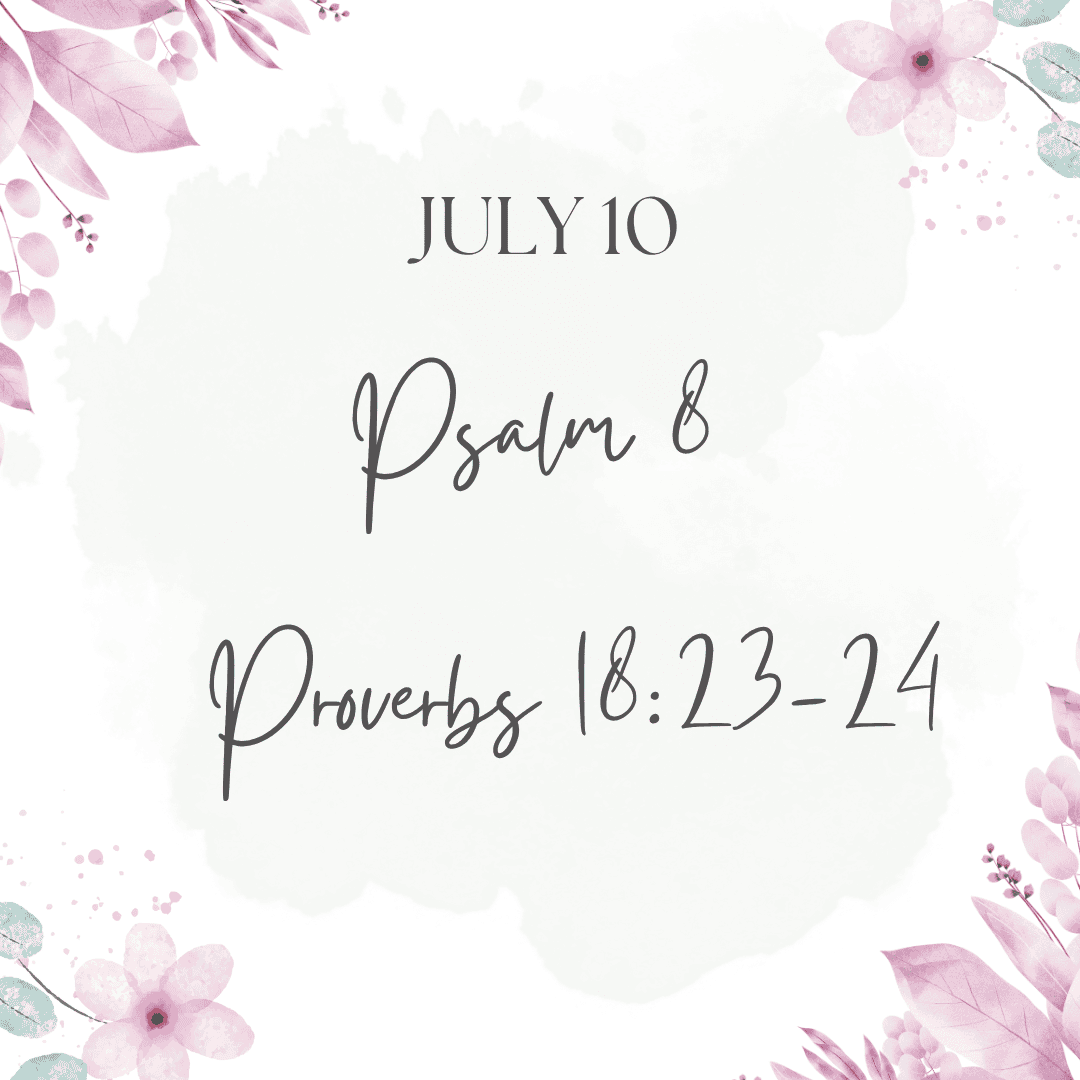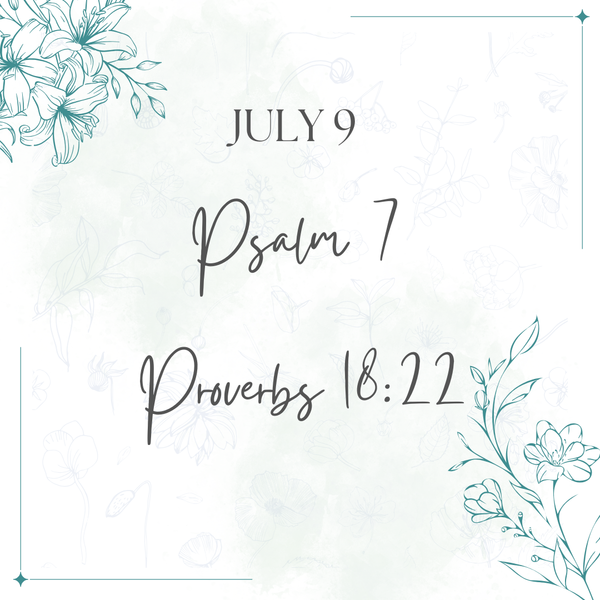July 7 Psalm 5:1-12 Proverbs 18:19

- In Psalm 5:1–3, David brings his groaning and cries to God in the morning—what does this reveal about the role of daily prayer in emotional renewal, and how might beginning each day with honest emotion help reshape your inner life?
- King David wrote down his prayers. What do you think writing down prayers help a person's prayer life? Have you practiced writing down your prayers? If so, how do you think such practice impacted you?
- According to Psalm 5:4–6, God “takes no pleasure in wickedness.” How might remembering God's holiness shape the way we process anger, grief, or injustice in ourselves and others?
- In Psalm 5:7, David says, “Because of your unfailing love, I can enter your house.” Do you feel bold enough to pray to a holy God? If not, why?
- Verse 8 asks for guidance: “Lead me in the right path, O Lord.” Do you feel your life is on the right path? Have you often prayed such prayers like David did? How can praying for direction help restore clarity and calm?
- Psalm 5:9 describes people whose words are deceitful and destructive. How do we gain wisdom and discernment in our daily life?
- In this Psalm, did David prayed for personal revenge or for God’s justice? How can surrendering our emotional burdens to God’s righteous judgment help bring peace and prevent bitterness?
- Psalm 5:11–12 ends with a call to rejoice and take refuge in the Lord. What spiritual habits can help you shift from despair to joy, and how do these verses encourage you to express your emotions through praise?
- Proverbs 18:19 says, “An offended friend is harder to win back than a fortified city.” What strategies grounded in God's character (mercy, patience, truth) might help you process relational pain and pursue reconciliation wisely?
- How might reflecting on the contrast between the wicked (Psalm 5:10) and the righteous (Psalm 5:12) help reorient your feelings toward hope, especially when you're struggling with betrayal, injustice, or discouragement?
May discussion or meditation on God's Word bring you constant joy and strength!



